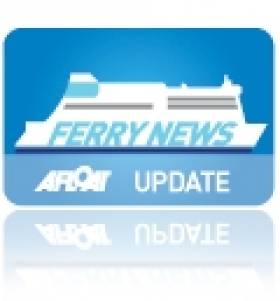Displaying items by tag: Lloyds Register
IMRF Launches #FutureSAR Climate Change Initiative in Collaboration with Lloyd's Register Foundation
The International Maritime Rescue Federation (IMRF) has launched its #FutureSAR initiative that will look to identify the key challenges the global maritime search and rescue (SAR) industry will face as a result of climate change.
The IMRF will also propose guidance and best practices that will aid rescue operations in the future.
The initiative, which is being funded by Lloyd’s Register Foundation, is the world’s first SAR industry-wide response to the effects of climate change on the maritime SAR sector as coastal communities, maritime activity and the infrastructure that they depend on become exposed to increasing risks.
#FutureSAR will look at how SAR services may be able to deal with climate change-related challenges, such as new rescue scenarios like storm surges, implementing new technologies such as alternative fuels, and protecting infrastructure such as lifeboat facilities.
“Climate change and the climate transition will have a major impact on maritime industries and communities. The #FutureSAR project will evaluate how SAR services will need to adapt to these profound challenges and provide a blueprint for future research and resources to help the SAR sector continue to serve the maritime community effectively,” said Caroline Jupe, Chief Executive Officer of the IMRF.
“SAR services operate in a changing risk landscape and must continually evolve to keep pace with the risks facing the communities they serve and their own operations, staff and volunteers. We are pleased to partner with the IMRF on the #FutureSAR initiative, which contributes to our mission of securing appropriate technical, operational and performance responses to climate change to enhance safety of life and property at sea,” said Jan Pryzdatek, Director of Technologies at Lloyd’s Register Foundation.
The IMRF will launch a working group, consisting of SAR organisations, technical institutes and engineering specialists, that will produce a report on the Climate Transition for Maritime SAR Services in 2024 that will be freely available to SAR organisations around the world to implement best practices for climate change-related challenges.
The #FutureSAR initiative will also look at ways the global maritime SAR community can contribute to the wider shipping industry’s drive to decarbonise and achieve net zero.
If you are interested in joining the IMRF's official #FutureSAR working group, please contact Caroline Jupe at [email protected] This group is available to IMRF Members only.
To find out more about the #FutureSAR initiative, visit the IMRF’s dedicated initiative by clicking the homepage.
#FerryMethanol – Classification society Lloyd's Register (LR) is set to class Sweden-based Stena Line's ferry Stena Germanica, claimed to be world's first methanol-powered sea vessel.
For the conversion of the 240m-long, 1,500-passenger Stena Germanica vessel to methanol propulsion, Stena has collaborated with Wärtsilä, the Port of Gothenburg, the Port of Kiel and Methanex Corporation, the world's largest methanol producer and supplier.
Five LR surveying teams from offices in Copenhagen, Trieste, Gothenburg, Venice and Southampton, have already overseen preliminary tests on a methanol-modified Wartsila engine 6ZAL40S that is similar to the one to be fitted on Germanica.
For more on this report visit: Ship-Technology.com
Opportunities in International Maritime Internships
A list of internships for the international maritime industry for 2011 has been announced and can be viewed on the Maritime Careers section posted on the Irish Maritime Development Office (IMDO).
The following companies: ABS, BP, Shell, Clarksons, Lloyds Register and the European Maritime Safety Association (EMSA) are offering a broad range of internship positions.
For further details on the internships and links to the companies, logon here
































































